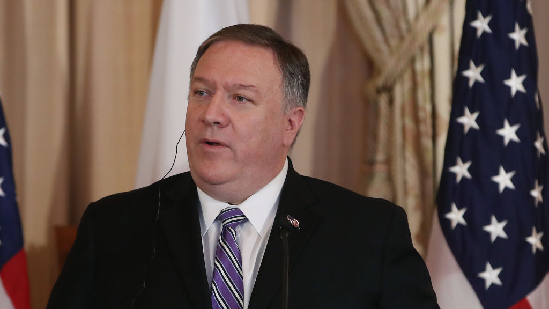
By Shi Wen
US Secretary of State Mike Pompeo participated in the Quadrilateral Security Dialogue held in Tokyo with foreign ministers of Japan, Australia and India on October 6 during his short trip to Asia. This informal four-party strategic forum was held in a high-profile manner after the temporary reduction of the itinerary. It is evident that the US is eager to gather allies to promote its so-called "Indo-Pacific strategy."
Many senior US officials, including Secretary of Defense Mark Esper, have frequently promoted a partnership network based on the "Indo-Pacific Strategy" in the Asia-Pacific region recently, in order to promote the strategic intensification of the US regional alliance centered on the quadrilateral dialogue.
In the field of technology and economy, the US Secretary of State and the Secretary of Treasury have said on multiple occasions that they will unleash Japan's potential in semiconductor technology, 5G networks, submarine optical cables and other fields, take advantage of India's software technology and market potential, give play to Australia's industry chain and ecological advantages, and fully deploy the human resources of South Korea and ASEAN countries on this basis.
In the field of security, all parties have carried out normalized defense cooperation on the grounds of maintaining maritime security, such as the US-Japan-Australia-South Korea Pacific Vanguard exercise that ended in Guam not long ago, and the US-Japan-Australia Keen Sword joint military exercise that will start at the end of this month. At the same time, the US, Japan and India also plan to invite Australia to participate in the Malabar naval exercise. By then, the four countries will hold a large-scale joint military drill for the first time. In addition, supply agreements in the field of military logistics have been signed between the US and India, and Japan and India. Recently, some media disclosed that the US P-8A anti-submarine patrol aircraft had shortly landed at an Indian airport for supplies.
In the field of diplomacy, political confrontation and diplomatic containment through alliance has become the main strategy of the US since the Trump administration re-established its "great power competition" strategy. Some analysts say that the US is promoting the creation of an "Indo-Pacific NATO" with the US, Japan, Australia, and India as the core. However, the governments of the US and Japan, which are the initiators of the "Indo-Pacific Strategy", are more focused on domestic elections and government change issues at present. India and Australia play more of the "follower" role in this quadrilateral framework.
The US election situation is unpredictable. Whether it is a new administration or the re-election of the Trump administration, there are uncertainties in the continuity of its regional policies. Since Trump took office, his individualistic behaviors, such as threatening to withdraw troops from within NATO and increase defense sharing costs, have caused dissatisfaction among its traditional European allies and have put pressure on its Asia-Pacific allies. The US and South Korea have held multiple rounds of consultations on the issue of defense costs sharing and those meetings were repeatedly "broken up". Pompeo's sole visit to Japan and participation in the quadrilateral dialogue once again severely damaged South Korea's self-esteem.
It can be said that the different calculations of its regional allies are the soft underbelly of the US in forming an "Indo-Pacific strategic arc". As a "pawn", although Japan is consistent with the US in terms of regional strategy, it holds different understanding of economic development and diplomatic thinking. Japan and South Korea not only have grievances over historical issues, but also have territorial disputes. Australia and India have traditional misunderstandings on geopolitical issues in the Indian Ocean and South Pacific. Indian media have repeatedly reported that the Modi government does not want "Australia to get too enthusiastic about Indian Ocean affairs."













